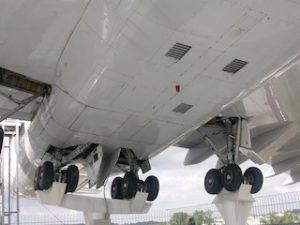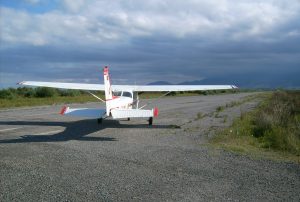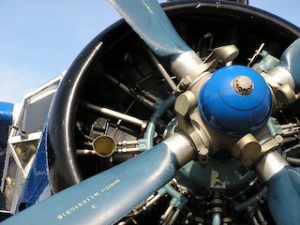The Duties Of A Finance Manager In The Airline Industry
 A finance manager in the airline industry handles many money-related duties daily. This work ensures that the airline stays stable. From planning to reporting, finance managers shape key decisions. They help the business stay profitable. Every airline relies on accurate numbers. Finance managers keep those numbers clear and updated.
A finance manager in the airline industry handles many money-related duties daily. This work ensures that the airline stays stable. From planning to reporting, finance managers shape key decisions. They help the business stay profitable. Every airline relies on accurate numbers. Finance managers keep those numbers clear and updated.
Finance manager plans and forecasts
A finance manager builds yearly budgets based on past data and new goals. They gather details from many departments. Then they check if costs match future plans. Each budget includes staff pay, fuel use, and route performance. Good forecasting keeps airlines ready for changes in demand and prices. Once forecasts are made, they track progress. Managers compare plans with actual numbers each month. They adjust future plans when costs rise. This way, the airline avoids major losses. Each change follows a clear method. This helps the airline grow while staying cautious.
Revenue tracking and profit management
Finance managers track revenue from every flight. They look at ticket sales, baggage fees, and upgrades. Each part adds to total income. These numbers help plan better pricing. When revenue drops, quick steps prevent deeper losses. Revenue updates go to senior leaders weekly or monthly. Profit margins are watched closely. Finance managers make sure all gains beat all costs. They share trends with other teams to keep goals clear. If margins fall, they act fast. Cost control plans are reviewed right away. This keeps the business steady and on track.
Cost control and spending oversight
Airlines spend on staff, aircraft, fuel, and ground services. Finance managers track every dollar spent. They check if prices match market rates. If costs rise too fast, they find out why. Sometimes they ask departments to slow spending. Savings help boost long-term success. All spending plans go through a review. Managers approve or reject based on current funds. Reports show where to reduce waste. Even small cuts can protect future profit. Finance teams suggest cheaper options without hurting service. Smart choices help keep operations smooth.
Compliance with financial regulations
Finance managers follow strict laws and industry rules. Airlines must report true data on time. Errors can lead to penalties. Managers double-check all reports for accuracy. They use approved tools and methods. Auditors also check the work often to stay within rules. They also work with regulators during inspections. Good records keep audits simple. Finance managers stay alert to new laws. This helps the airline avoid risk. They also train staff to follow proper steps. This keeps the entire company on the same page.
Handling financial reports and statements
Each month, finance managers prepare reports for leaders. These include balance sheets, income statements, and cash flow updates. Reports show if the airline earns more than it spends. These records help make smart choices. Clear reports lead to stronger plans and fewer errors. All reports follow accounting standards. Finance managers use tools to prepare neat formats. They also check for missing numbers or wrong entries. Correcting issues early builds trust with partners. Investors also read these reports. Good data can bring more support for future projects.
Cash flow monitoring and planning
Cash flow means how much money moves in and out. Finance managers check this daily. They know how much cash is in the bank. They also track how much goes out to pay staff and vendors. Good planning avoids shortfalls. When cash runs low, they find short-term fixes. These may include delaying payments or drawing from reserves. Extra funds may come from loans. Long-term plans help avoid cash gaps. Good cash control lets the airline act fast during slow periods.
Coordinating with procurement teams
Finance managers often work with buyers. They help choose suppliers based on price and value. Each purchase affects the budget. They check if deals meet the money plan. Airlines buy fuel, food, tools, and uniforms daily. Finance teams help reduce waste. They also review contract terms with vendors. They seek fair terms for both price and delivery. Managers reject deals that go beyond the budget. Regular talks with buyers help track spending. This teamwork builds smarter purchase habits across departments.
Managing loans and financial agreements
Airlines use loans to fund large needs like aircraft or airports. Finance managers find good deals with lenders. They review loan terms carefully. Interest, payment dates, and length are key parts. A small change in terms affects future cash flow. They also manage ongoing debt. Each payment must happen on time. Missed payments harm credit and trust. Finance teams track due dates and balances. They also plan for future loans when needed. This helps expand without overloading the budget.
Aircraft financing and leasing
Aircraft purchases need long planning. Finance managers study costs, taxes, and lease options. They choose between buying and leasing. Each option has different risks and cash needs. Managers review lease rules often to avoid hidden costs. They also update senior teams on aircraft value. Some planes lose value fast. Others stay strong over time. Knowing these changes helps with fleet plans. Strong records help during lease talks or renewals. This keeps aircraft spending low and smart.
Working with internal teams
Finance teams work with every part of the airline. They meet with ground staff, engineers, and planners. Each team shares its money needs. Finance managers collect all these details. Then they form plans that work for everyone. This teamwork helps stop delays in projects. When everyone shares clear goals, the airline works better. Finance teams explain money limits to each group. This keeps spending in check. Regular meetings help solve problems early and prevent surprises.
Payroll and compensation oversight
Finance managers help run payroll for flight crews and ground staff. They track hours, bonuses, and taxes. Mistakes can cause upset, so accuracy matters. Paychecks must be on time. Managers also review benefit costs each year. They also report payroll data to leaders. This helps with hiring plans. When costs rise, managers explore better options. Each decision impacts staff morale. Fair and timely pay keeps staff focused and loyal. This helps keep flights running on time.
Fuel price monitoring and planning
Fuel costs form a large part of airline expenses. Finance managers track daily fuel prices. Sudden spikes can hurt profits. To manage risk, they use fuel contracts. These lock prices for future use. This protects budgets from sharp rises. They also study fuel use trends. If one aircraft burns too much fuel, they report it. This leads to changes in routes or aircraft use. Fuel reports go to flight planning teams. This link improves savings and lowers costs.
Insurance and risk planning
Finance managers help buy insurance for aircraft and property. They check policy terms and prices each year. The goal is to cover big risks at fair prices. They work with brokers to compare offers. They also track past claims to spot trends. Risk reviews happen often. They help protect the airline from legal or money losses. Managers also suggest ways to cut risk. This might mean changing vendors or updating rules. Less risk brings better rates and lower stress during bad events.
Currency and foreign payment management
Airlines pay for parts, services, and fuel in many countries. Finance managers track currency shifts daily. Big changes can cost money. They use tools to reduce that risk. Some tools lock in exchange rates ahead of time. Foreign banks may also be involved. Finance teams check if payments arrive on time. Late fees or errors cause trouble. Managers build good ties with overseas banks. This helps smooth out daily payments. They also update reports to match currency trends.
Working with airport authorities
Each airport has its own fees and rules. Finance managers study these costs closely. They track landing fees, parking, and ground service costs. They match these charges with the airline’s budget. Some airports raise fees without notice. Managers review contracts often to spot new charges. They also attend talks with airport teams. This keeps costs fair and avoids surprise hikes. Each fee must be tracked and paid on time to avoid service delays.
Investment in technology and systems
Airlines invest in new systems each year. Finance managers help choose the right tools. These may include booking systems or fuel trackers. They review the return on each project. This helps the airline grow in a smart way. They also watch the cost of system upgrades. Some tools need staff training. Others need licenses. All these costs go into reports. Finance managers also set aside money for updates. This keeps systems fresh and fast.
Helping with strategic decisions
Finance managers attend planning meetings with top leaders. They give facts, not guesses. Their numbers support new routes, new hubs, or staff changes. If the numbers do not work, they say so. They also review past results to shape new plans. Finance managers highlight weak spots early. They offer fixes backed by data. When leaders trust the numbers, better plans follow. This helps the airline grow without risk.
Staying ahead with data and trends
Finance managers use dashboards to spot new trends. They track profits, losses, and costs in real time. This helps act fast when things change. Charts and reports show the way forward. They also read news on travel and markets. Knowing what’s next helps them adjust plans. Data helps answer where to spend and where to save. Teams use this to support flights, crews, and systems alike.
Powering the numbers behind the wings
Each number tracked by a finance manager supports safe and steady flight. Their work shapes every ticket sold and every dollar saved. As they guide budgets and review results, they keep the airline moving forward. With clear plans and sharp focus, they help the skies stay within reach.










